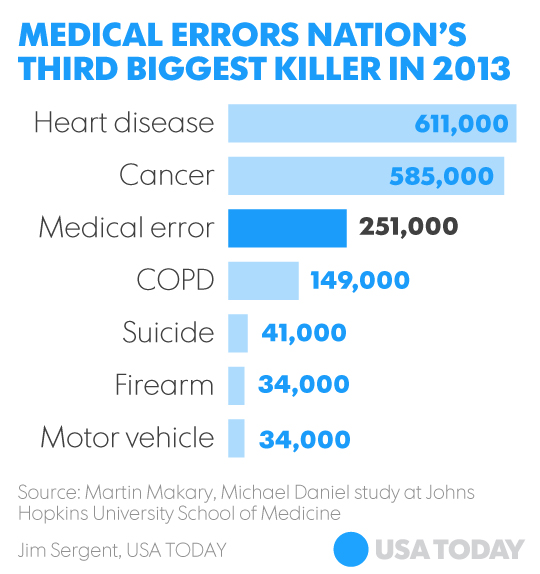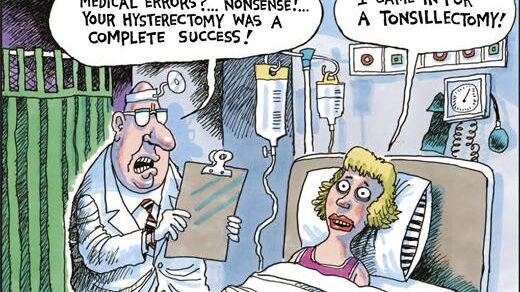It’s no surprise that lawyers and communications professionals don’t always see eye to eye. This can be especially true when it comes to medical errors, the third leading cause of death in the U.S.
Medical errors claim an estimated 251,000 lives each year, but they affect even more, with temporary or permanent injuries. Some people never even realize that they’ve been the victim of a medical error.
The purpose of this post isn’t to try to vilify providers. The fact is – even the best doctors are capable of medical mistakes. To err is human. But, in many instances, providers are encouraged to say as little as possible following a medical error, adding insult to injury for victims. After all, saying “I’m sorry” means the victim has a slam dunk in the court room. Right? Right??? Not always.
Traditionally, the only way for patients to find out what went wrong has been to sue. A study from the July 2004 issue of Health Affairs found that patients’ primary motivators to sue included:
- Perception that the physician was not honest about the incident
- Perception that no one explained what happened
- Advice from someone—often another health professional—to sue
The good news for providers – the first two factors are within their control. And, if they act quickly, the third may never even become an issue.
The Agency for Healthcare Research and Quality advocates for a process called CANDOR (communication and optimal resolution) that is based on a program pioneered at the University of Michigan. The hallmarks of the program include prompt investigation of errors, sharing of findings with the victims, and an apology and compensation for injuries.
CANDOR works. In Michigan, the number of lawsuits was cut nearly in half, and the health system saved about $2  million in litigation costs in the first year after the new model was adopted in 2001.
million in litigation costs in the first year after the new model was adopted in 2001.
Maryland-based MedStar Health implemented CANDOR and has a goal of telling a patient or family within 15 minutes of a medical error occurring. A recent Washington Post article details the story of a MedStar patient who became a quadriplegic after an error occurred during disc replacement surgery. While the patient and his family were compensated for the error, it never required litigation, and the doctor and the patient have maintained a strong relationship. However, it’s not just about avoiding lawsuits and saving money. Acknowledging medical errors helps ensure that hospitals take steps to prevent them from happening again.
From a communications standpoint, what do victims of a medical error want to hear from their provider? Lucian Leape, M.D., of the Harvard School of Public Health conducted research that found victims want their physician to:
- Acknowledge the error and explain it
- Take responsibility and apologize
- Find the underlying cause and prevent its recurrence
The wife of the MedStar patient recalls that MedStar executives “told me what had happened, why it happened, that it was directly or indirectly their fault and that whatever I needed I should ask for.” This same communication approach also serves providers well in the court of public opinion. The physician responsible for the error was conveyed in the Washington Post story as someone who is deeply remorseful for what happened – someone who made a life-changing mistake. A mistake.
Regrettably, medical errors will always be part of healthcare. They often result in a situation where everyone loses – the victim, the physician, the hospital. By proactively communicating, providers can bring closure to victims and their families and to help protect their reputation and that of their hospital.

